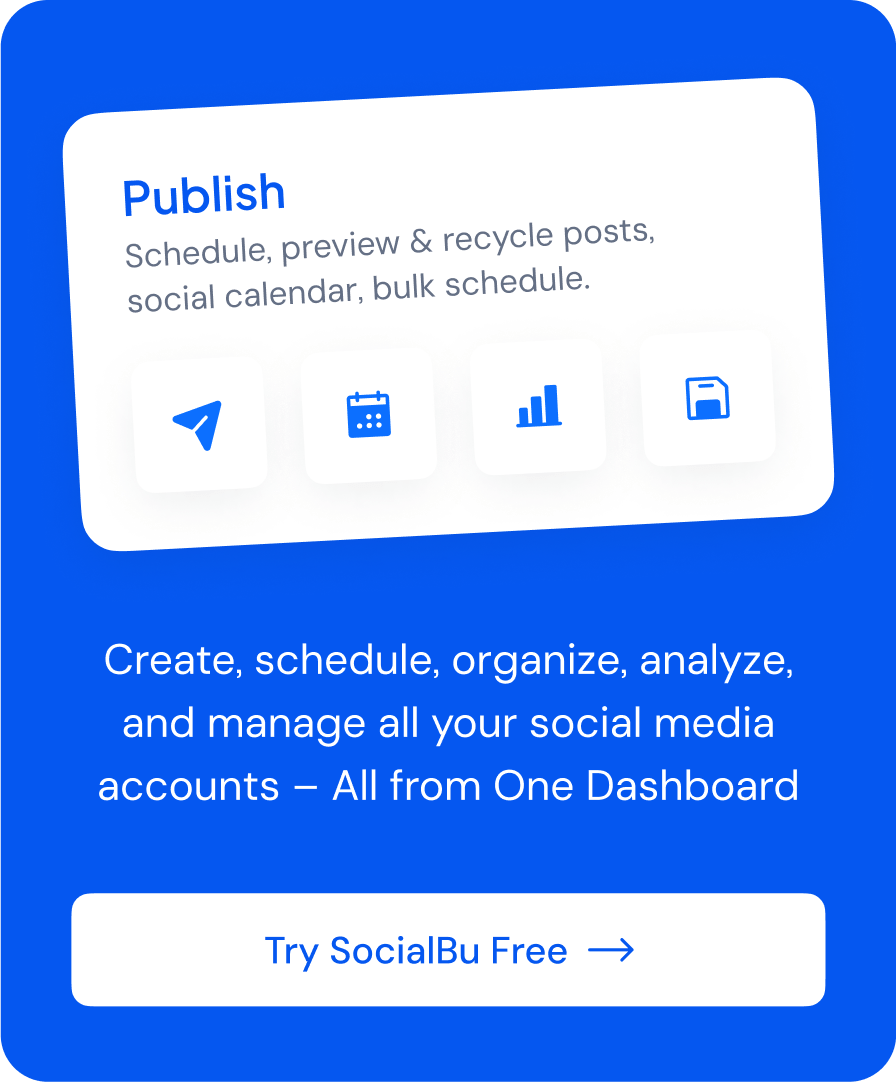For startups trying to do more with less, understanding the roles of social media manager vs. marketer is crucial. While both drive your online presence, they serve different functions, and hiring the right one at the right time can fast-track your growth.
Social media has moved far beyond fun posts and updates. It now plays a direct role in driving purchases, with 54% of users turning to social posts for product research.
Behind every click, like, and conversion are the efforts of both social media managers and marketers.
Choosing the wrong role or expecting one person to do both can limit your results. That’s why knowing the difference is the first step toward building an effective social media strategy.
In this blog, we will examine the differences between a social media manager and a marketer, so you can determine what is best for your business.
What is a Social Media Manager?
A social media manager specializes in managing all of the social media platforms of your business. They focus on building an online community for your brand, increasing online customer engagement, and maintaining consistent brand awareness on social media. All in all, their role centers on social media strategy, ensuring your audience feels connected and valued.
Key Tasks of a Social Media Manager
Community Engagement: Respond to comments, messages, and mentions to build trust and loyalty.
Scheduling and Posting: Plan and schedule content using tools to ensure timely, consistent posts.
Brand Voice: Maintain a cohesive tone that resonates with your audience.
Best for
Social media managers are ideal for businesses prioritizing long-term brand building. If your startup needs a strong, relatable online presence and a loyal community, this role is the perfect fit. It suits companies focused on organic growth and audience connection over immediate sales.
Also Read: Brand Marketing vs Performance Marketing: What’s the Difference?
What is a Social Media Marketer?
On the other hand, a social media marketer manages online campaign strategies centered around your brand. Driving measurable results through paid efforts. They leverage ads and data analytics to boost conversions, clicks, and ROI. Their focus is on performance-driven campaigns that align with specific business objectives.
Key Tasks of a Social Media Marketer
Performance Tracking: Monitor key metrics such as click-through rates (CTR), conversions, and return on ad spend (ROAS).
Audience Targeting: Use tools to segment audiences based on demographics, interests, or behaviors.
Budget Management: Allocate and optimize ad budgets to maximize campaign impact.
Best for Type
Social media marketers shine in businesses seeking short-term, measurable growth. If your startup needs quick results, such as increased sales or lead generation, this role is your best bet. It’s perfect for companies with budgets for paid promotions and a focus on data-driven outcomes.
Quick Comparison: Social Media Manager vs Marketer
| Aspect | Social Media Manager | Social Media Marketer |
|---|---|---|
| Focus | Brand presence & community | Campaigns & performance |
| Metrics | Engagement rate, follower growth | CTR, conversions, ad ROI |
| Day-to-Day Tools | Scheduling tools, comments inbox | Ad platforms, UTM tracking |
| Content Approach | Organic content & curation | Paid promotion & targeting |
| Ideal Hire For | Long-term brand building | Short-term measurable growth |
This social media hiring guide highlights how each role serves distinct purposes. Managers focus on analytics vs community management and building relationships, while marketers emphasize campaign planning and execution for immediate results.
Social Media Manager vs Marketer: What Sets Them Apart?
Now that we have examined the key differences, it’s crucial to consider them in depth so you can decide which role best fits your business goals.
As a social media manager, you’re the face of the brand, engaging directly with followers and shaping how they perceive your business. Your work is relational, focusing on trust and consistency.
Metrics like engagement rates and follower growth serve as your benchmarks, and you thrive on creating organic content that tells your brand’s story.
Whereas, as a social media marketer, you’re the numbers person, diving into data to drive conversions. Your campaigns are strategic, often tied to specific goals, such as product launches or seasonal promotions.
Tools like Meta Business Suite help you to measure success, prioritizing paid strategies over organic reach.
Next, let’s examine how to select the ideal role for your startup.
How to Choose the Right Role for Your Startup
Choosing between a social media manager role vs a marketer depends on your startup’s goals, resources, and audience.
Here’s how you can make an informed decision:
Assess goals
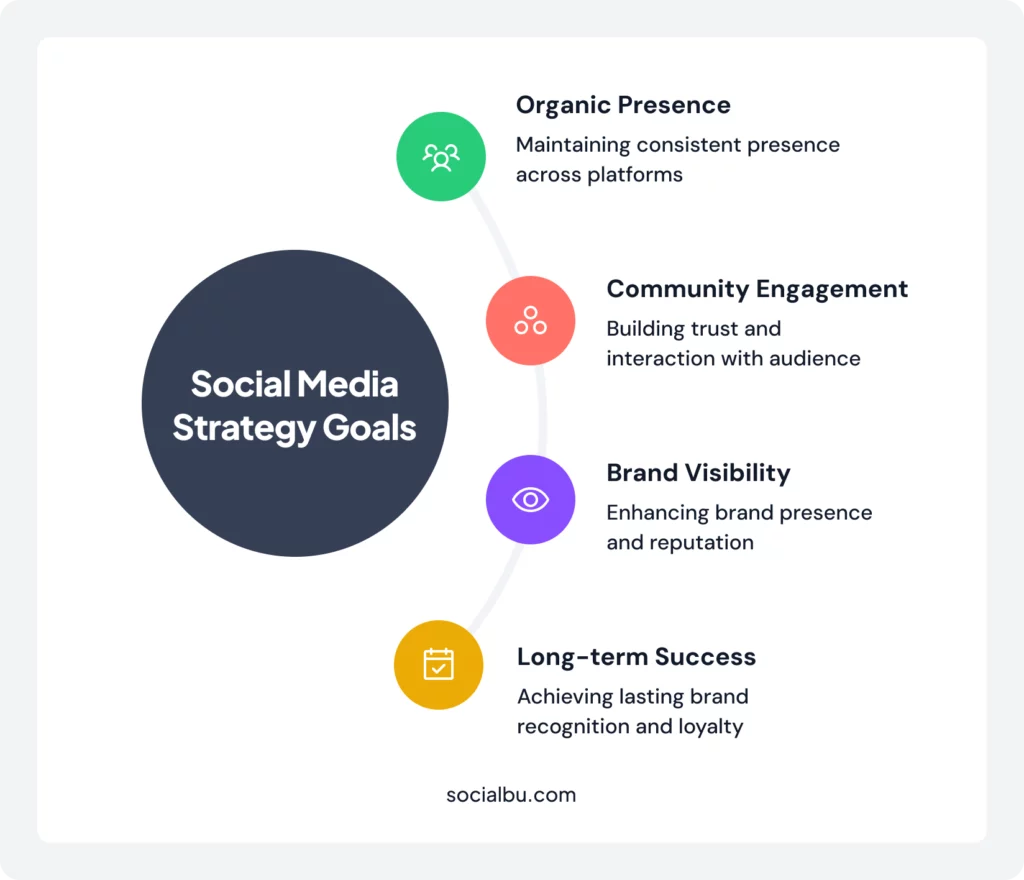
What are you aiming for? If your priority is building a recognizable brand and enhancing loyalty, a social media manager is essential. They’ll create a community that trusts your brand, which is crucial for long-term success.
If you’re launching a product or need quick sales, a social media marketer’s campaign expertise will drive measurable results.
- Focus on long-term brand visibility and reputation.
- Aim to create strong community engagement and trust.
- Need to establish a consistent organic presence across all platforms.
Evaluate resources
Your budget and team size matter. If you’re a small startup with limited funds, a manager can handle organic growth cost-effectively. If you have an ad budget, a marketer can maximize its impact.
Consider whether you need one role or both, depending on your capacity to fill the position.
- Limited budget and a small team favor a generalist manager.
- A dedicated ad spend allows for specialized marketing roles.
- Need someone who can wear multiple hats and adapt quickly.
Sign up for SocialBu today.
Consider audience needs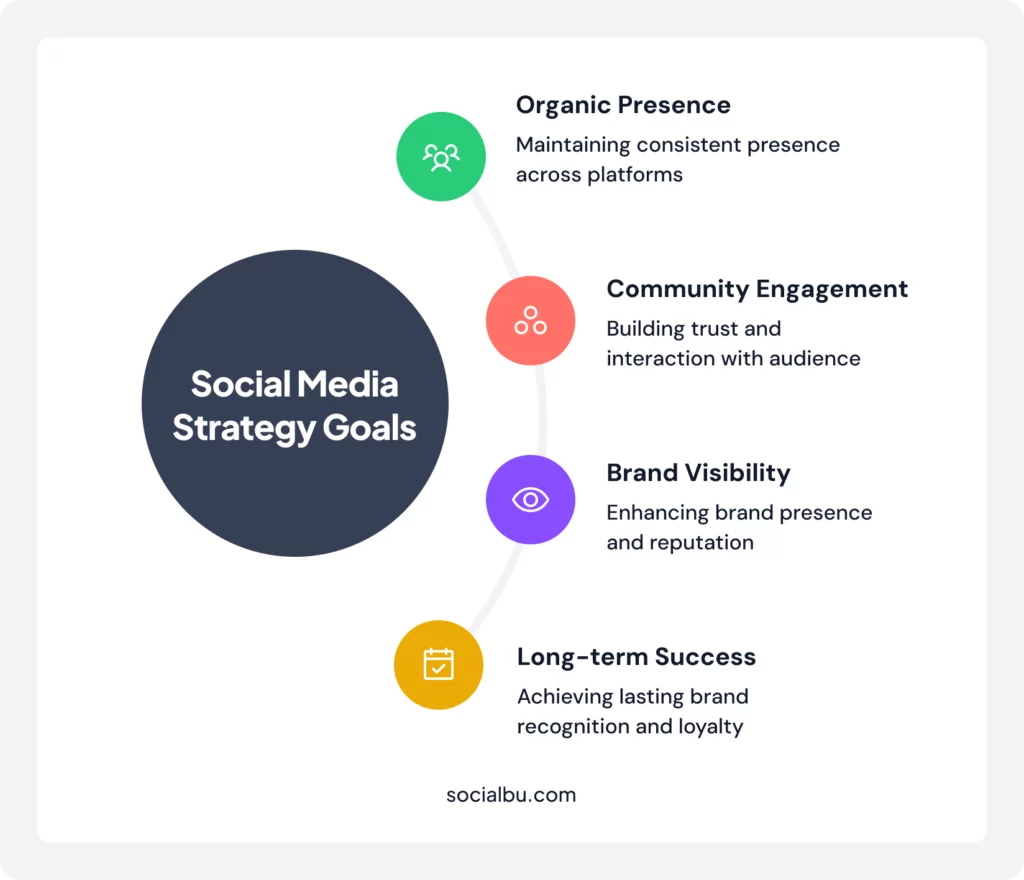
Who are you reaching? If your audience values authenticity and engagement, a manager’s community-focused approach is key. If they respond to targeted ads and promotions, a marketer’s precision will resonate.
Understanding your audience’s behavior helps prioritize the right role.
- An audience that expects interaction and replies needs a manager.
- Data-driven audiences who respond to promotions are ideal for marketers.
- If storytelling and relatability matter, choose a social media manager.
Use SocialBu’s Analytics to Determine Which Role Is the Priority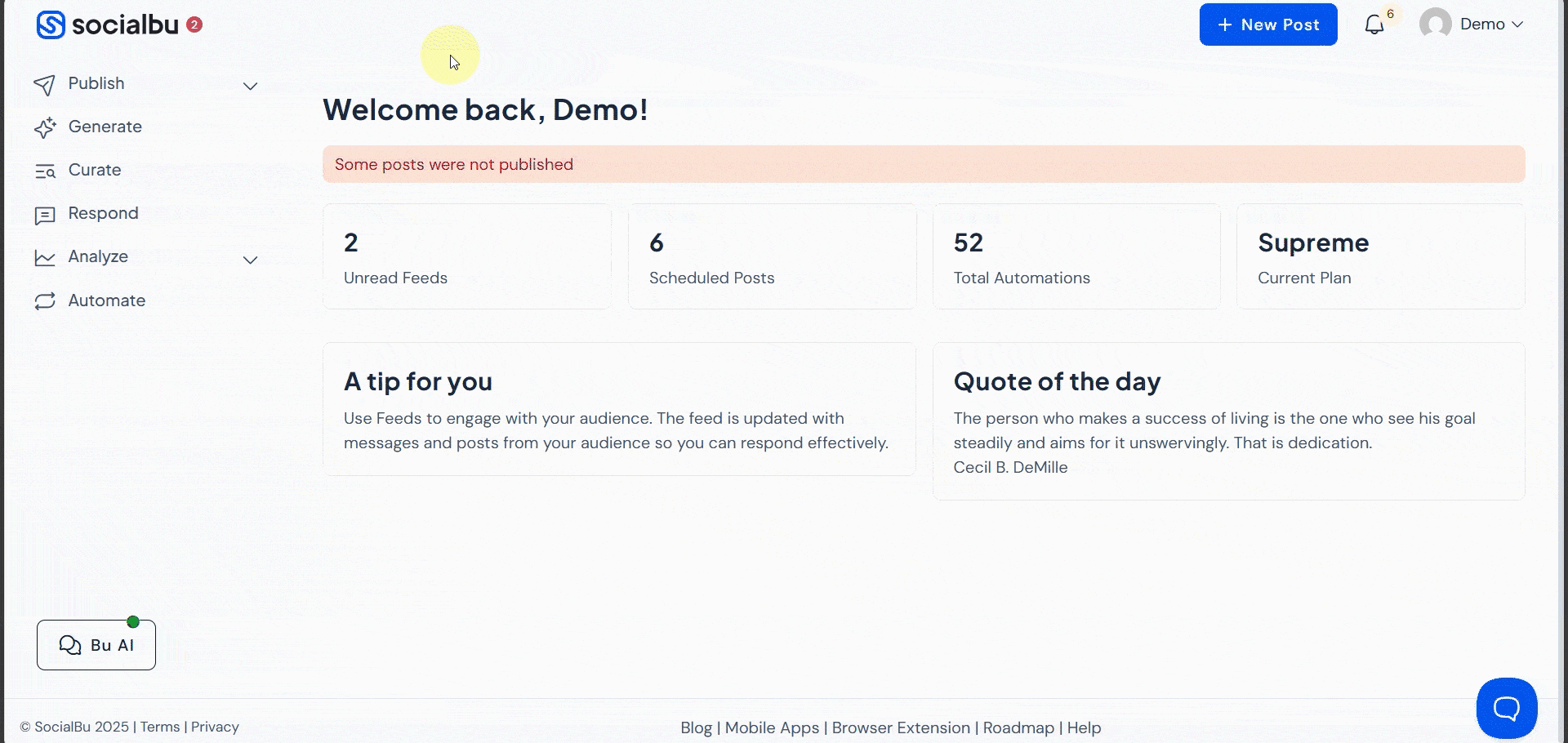
SocialBu’s analytics tools provide insights into your social media performance, helping you determine which role best aligns with your needs. You can track engagement metrics to see if a manager’s organic efforts are enough or analyze ad performance to justify hiring a marketer. These simplify the decision-making process by highlighting what drives your audience’s actions.
- Engagement Analysis: Monitor likes, comments, and shares to check the effectiveness of organic content, guiding whether a manager’s role is sufficient.
- Identify Top Performing Posts: See which posts resonate most with your audience and promote content that’s already gaining traction.
- Track Your Growth Trends: Access all performance charts in one place for easy comparison—understand which accounts and posts are performing best.
- Audience Insights: Identify audience behaviors and preferences to align your hiring with their expectations
Simplify It All with SocialBu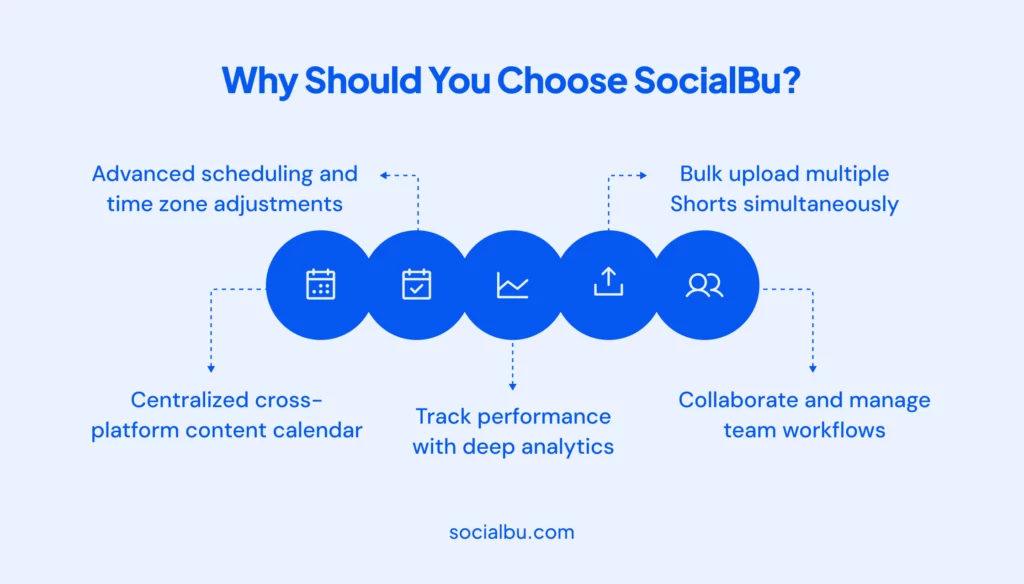
Managing social media can feel overwhelming, whether you’re focusing on organic growth or paid campaigns. SocialBu streamlines both roles with features like content scheduling, analytics, and ad performance tracking.
You can automate posting, monitor engagement, and optimize campaigns from a single platform, making it easier to execute strategies across social platforms.
Here’s how SocialBu helps manage your social media:
- Scheduling: Plan and schedule posts across multiple platforms with ease, ensuring consistent content delivery for social media managers.
- Automation: Automate repetitive tasks, such as posting and responding to comments, to save time for both managers and marketers.
- Team Collaboration: Enable seamless team collaboration between managers and marketers with shared dashboards and task assignments.
- Analytics: Access detailed performance data to track engagement and campaign success, guiding strategic decisions.
- Social Calendar: Visualize your entire content plan with a drag-and-drop social calendar that makes it easy to organize, edit, and maintain posting consistency.
Conclusion
The difference between a Social media manager and a marketer is crucial for startups aiming to leverage social media effectively. A social media manager builds your brand’s presence and fosters community, while a marketer drives campaigns for measurable growth and results. By assessing your goals, resources, and audience needs, you can decide which social media professional to hire.
So, if your brand needs consistency, engagement, and organic visibility, a manager might be the better fit. On the other hand, if your focus is on rapid conversions and scalable promotions, a marketer could deliver faster results.
Start your journey with SocialBu’s 7-day free trial to streamline your social media strategy today.
FAQs
What’s the main difference between a social media manager and a marketer?
A social media manager focuses on creating organic content, fostering community engagement, and building brand awareness, while a marketer prioritizes paid advertising campaigns, analyzing data, and driving conversions.
Which role is best for growing engagement?
A social media manager is best for growing engagement, interaction, and creating organic content that resonates with your audience. Their work often leans heavily into content strategy vs execution, focusing not just on posting, but on planning meaningful content that drives likes, shares, and comments.
Do I need both a manager and a marketer?
It depends on your goals and resources. Small startups may combine roles, but larger teams benefit from both for a comprehensive social media strategy.
Can one person handle both social media management and marketing?
Yes, especially in smaller businesses or startups:
- Many professionals can handle both roles when budgets are tight
- It requires a mix of creative, strategic, and analytical skills
- As your business grows, separating the roles often improves focus and results
How do I decide who to hire first?
Assess your priorities: hire a manager for brand building and engagement or a marketer for immediate sales and campaign results. Use analytics to guide your decision.
Do I need a social media manager or a marketer for my business?
It depends on your business goals. If you’re looking to build a consistent brand voice, engage your audience organically, and maintain a steady content presence, a social media manager is ideal.
What qualifications differentiate the two roles?
Managers need skills in content creation, communication, and community management. Marketers require expertise in ad platforms, data analysis, and campaign optimization.
Is a social media manager more creative than a marketer?
A social media manager often focuses on the creative side—planning visually appealing posts, writing engaging captions, and developing brand tone. While marketers can be creative, their primary focus is performance and data-driven results from campaigns.
What tools do social media managers and marketers use?
Social media managers often use tools like Canva and SocialBu for scheduling and content planning. Marketers rely on platforms like Meta Ads Manager, Google Analytics, and conversion tracking tools to optimize campaigns and measure ROI.
How much does it cost to hire a social media manager vs a marketer?
Costs vary based on experience and scope. A freelance social media manager may charge $500–$1,500/month, while marketers—especially those running paid ads—may charge $1,000–$3,000/month or more. Hiring a full-time employee can be significantly more costly, depending on your region.
Can I switch from a manager to a marketer later on?
Many businesses start with a social media manager to build their presence and switch to or add a marketer when they’re ready to scale.
What KPIs should I track for each role?
For social media managers, key KPIs include engagement rate, follower growth, post reach, and community interaction. For marketers, focus on conversion rate, cost per click (CPC), return on ad spend (ROAS), and lead generation metrics.
Can AI replace a social media manager or marketer?
AI tools can assist both roles by automating repetitive tasks, such as scheduling, hashtag generation, and analytics reporting. However, they can’t fully replace the strategic thinking, creativity, or human touch required for authentic engagements.
How are marketers using AI to improve campaign performance?
Social media marketers are leveraging AI to analyze audience behavior, A/B test creatives, personalize ad delivery, and optimize budgets in real-time. Platforms like Meta Ads and Google Ads now incorporate AI features that predict outcomes, enabling marketers to make smarter decisions more quickly.


